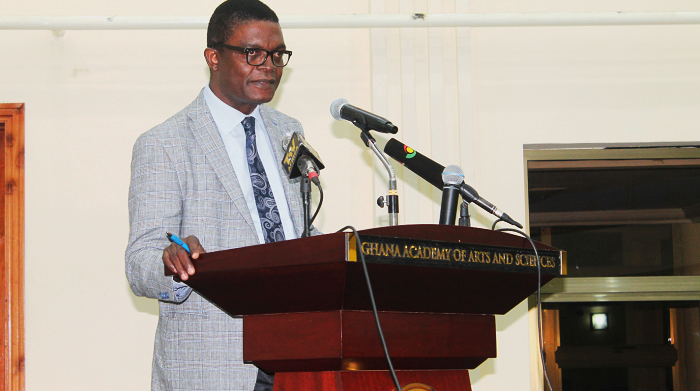
IPR asked to develop strategies to enhance political dialogue
The Institute of Public Relations (IPR) has been asked to develop communication strategies that will enhance political dialogue among stakeholders as the country heads to the December 7 polls.
The Executive Director of the Institute for Democratic Governance (IDEG), Dr Emmanuel Akwetey, who made the call, also urged public relation practitioners to play a front-line role to promote the use of decent language in the political discourse.
He was speaking at a public lecture organised by IPR in Accra last Tuesday on the theme: “Public Relations and Peaceful Elections: your role, my role.”
Present at the lecture were key personalities drawn from civil society organisations (CSOs), professional bodies, members of the IPR and a section of the public.
Precedents
The call by Dr Akwetey comes in the wake of public concerns about the threat of violence by some political actors and the growing concerns about the use of the media to propagate hate speeches.
Last week, the former Chairman of the National Media Commission (NMC), Ambassador Kabral Blay-Amihere, asked for a national dialogue on how to avert the threat social media posed to the peace of the country in the 2016 general election.
He also called on the media to adhere to professional standards and avoid the use of inflammatory language that could plunge the country into chaos during and after the election.
Political commentators
Dr Akwetey observed that most of the political commentators and actors in the political discourse lacked civic and political education to conduct their activities in decorum.
“This is why the role of IPR and public relation practitioners is critical in the unregulated public space. The IPR can create a useful platform for political dialogue that will promote peace, national cohesion, and peaceful elections,” he added.
He said the mobilisation of all political actors for peace and stability in the elections was a shared responsibility, for which reason he urged corporate professionals, especially the IPR, to blaze a trail.
“Democracy is sustained by useful conversation in the public space. It involves active participation of citizens for informed choices to be made. IPR needs to respond to that call by bringing their professionalism and expertise to bear [on the situation],” he said.
Dr Akwetey also observed that the dominance of the political space by two parties, the National Democratic Congress (NDC) and the New Patriotic Party (NPP) was not healthy for the country’s democracy.
“The two parties are behaving as if they are bigger than the country and the laws of the land. They want to win at all cost, and this trend creates violence,” he said.
PR is key
The President of IPR, Mrs Elaine Sam Kwami, observed that the polarised political environment and subsequent use of inflammatory language made the Public Relations practitioners’ role crucial in addressing those challenges.
She called on political commentators to be guided by the principles and theories of communication which required them to research and be knowledgeable about the subject they speak about.
